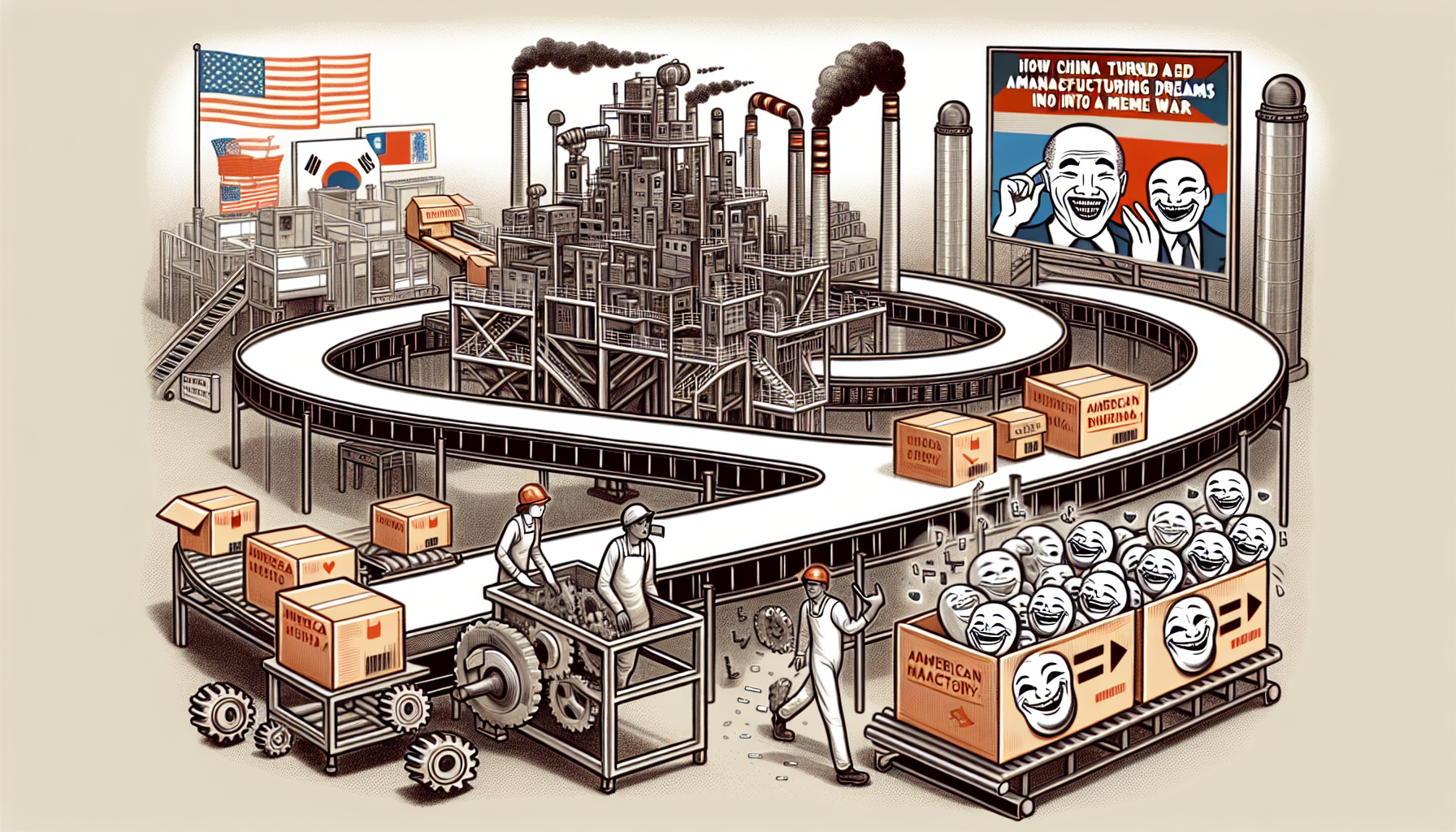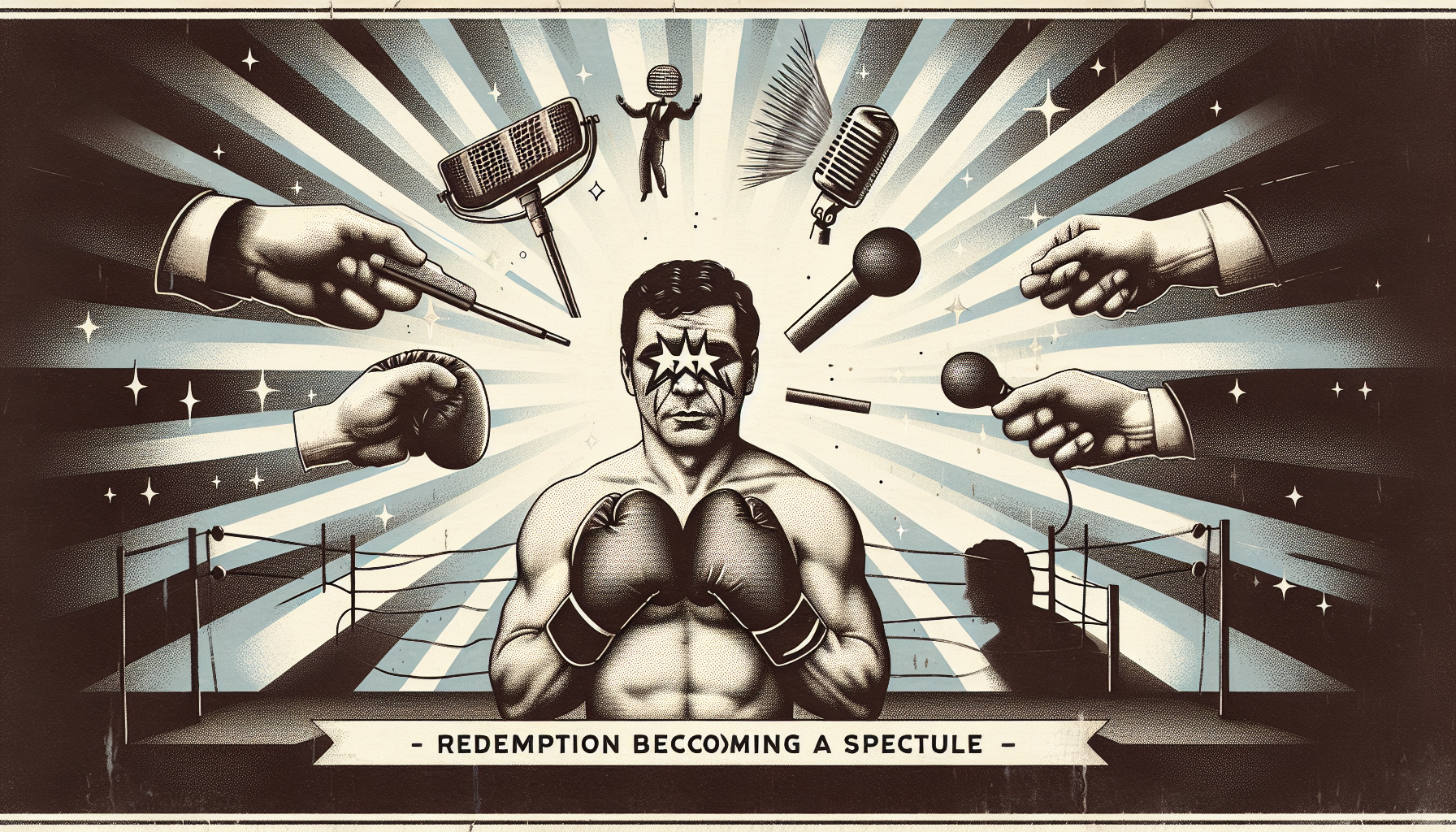Title: Machines, Memes, and Made-in-America Dreams: How China Turned U.S. Manufacturing Nostalgia Into a Laughing Matter
Dear readers,
When does economic policy become performance art? When does geopolitical rivalry cross the digital divide into satire? If you’re watching the ongoing U.S.-China trade war unfold in real-time—as many of us are, often via TikTok parodies and artificially generated memes—you already know: this isn’t just about tariffs. It’s about narrative dominance. And right now, China isn’t just retaliating with economic measures. It’s retaliating with laughter.
Let’s unpack the strange cultural specter rising from a simple (and deeply political) premise: What if jobs traditionally “Made in China” were suddenly “Made in America”… by burger-eating, bleary-eyed workers slumped over sewing machines?
Yes, it's absurd. But it’s also viral. And that should concern us.
🧵 From Tariff Talk to TikTok Tropes
Scroll through Chinese social media right now and it's likely you’ll see a recurring scene: overweight American factory workers assembling sneakers while chomping into Big Macs, dozing off at hi-tech sewing machines, and waving MAGA banners in parody sweatshops. These AI-generated videos—glossy, surreal, and calibrated for clicks—emerged shortly after former President Donald Trump relaunched his “America First” economic crusade, escalating tariffs up to 145% on imports from China.
What should've been page 16 news in the Financial Times quickly transformed into culture war content. A meme war. A digital campaign that harvested both scorn and shares.
“Make America Strong Again?” Chinese netizens echoed the slogan with satirical glee, remixing it into furrowed brows and clogged assembly lines. It’s comedy, undoubtedly. But it’s comedy with teeth.
🔍 A Joke That Cuts Deep
Let’s not confuse this for simple schadenfreude. These AI-generated videos might feel disposable at first—another data dump in an overstimulated scroll-cycle—but they’re steeped in real tension. The caricature of an incapable American labor force pokes at a truth economists have long whispered: America simply doesn’t want to make things anymore.
CATO Institute research confirms what many of us already suspected. While 80% of Americans like the idea of “bringing jobs back,” only 25% say they’d actually want one of those jobs. Not when service-sector jobs offer more comfort and better pay. Not when machines can do it faster. And certainly not when manufacturing has become, in cultural terms, something to be outsourced—physically and metaphorically.
Compare that with China’s gravity-defying industrial machine, with over 100 million people in manufacturing jobs and a national pride built, literally, through labor. That’s what makes the satire sting. It exaggerates—but doesn’t fabricate.
🌎 A Cultural Mirror Cracked
Back in the States, the idea of reviving U.S. factory jobs is not just an economic proposition—it’s political theater. A myth of a golden age that’s easier to campaign on than to recreate.
The irony? Even in China, factory work isn’t the dream it once was. Young workers there aspire to tech start-ups, influencer economy gigs, and creative industries. In 2025, a viral Chinese meme quipped: “Even we don’t want these jobs anymore. Why would Americans?” Ouch. That's not just mockery—it’s market analysis.
Even more biting is the emerging narrative that “America is China’s new Vietnam”—a cheap, alternative labor pool to be gamed if tariffs twist enough arms. In one meme, China is seen handing the U.S. a wrench, saying: “Your turn.”
🎭 From Parody to Propaganda
So what are we really witnessing?
We’re witnessing satire used as statecraft—a deft manipulation of soft power. Chinese state media didn’t just respond to Trump’s tariffs with press releases. They responded with AI-generated music videos, meme-rich parodies, and strategically viral content painting America not as competitor, but as comedic foil.
It’s state-sponsored trolling with a point: undermining the myth that America can somehow rewind globalization and go back to being the world’s workshop. As peace and conflict scholar Mark Cogan put it, “We’re the punchline now.”
And we’ve played our part. These memes—many created by users inside China using VPNs or shared by diaspora users—are now flooding TikTok, X, and Reddit threads across the U.S. Americans, misreading them as anti-Trump or just “funny,” are resharing satire that subtly erodes national economic confidence.
Irony as geopolitics. How 2025 of us.
🤖 Automation, Alienation, and the American Dilemma
Of course, none of this exists in a vacuum. Even if U.S. manufacturers suddenly decided to bring jobs home, who would do them? Many of the jobs are no longer labor-driven but automation-led. The rest require highly specialized skills mostly covered… by international students. Who, let’s not forget, Trump’s policies are increasingly discouraging.
That means we don’t just lack willing labor; we lack qualified labor. And no amount of flag-waving manufacturing rhetoric can fill that gap.
Even China—with its massive labor force—is moving toward automation. Yet they're still feeding the global factory model while exporting tech and ridicule in equal measure.
📡 Tariffs Are Temporary. Memes Are Forever.
So what can we take away from this thoroughly modern parody war?
First, that economic policy is now theater, and the global audience is watching. Second, that narratives move faster than legislation. A video on TikTok can reframe a billion-dollar policy in thirty seconds. Finally, that cultural capital—who tells the story of who is competent, powerful, resilient—is worth just as much as factory output.
In the end, the meme war isn’t just a punchline. It’s strategic storytelling. And in that arena, China is currently setting the tone while America grapples with its own industrial identity crisis—one burger joke at a time.
Until next time, remember: What we manufacture at home isn’t just goods. It’s image, narrative, belief. And for now, at least, someone else is doing that job better than we are.
Yours insightfully,
A Watcher of Memes & Machines 👁️🗨️

